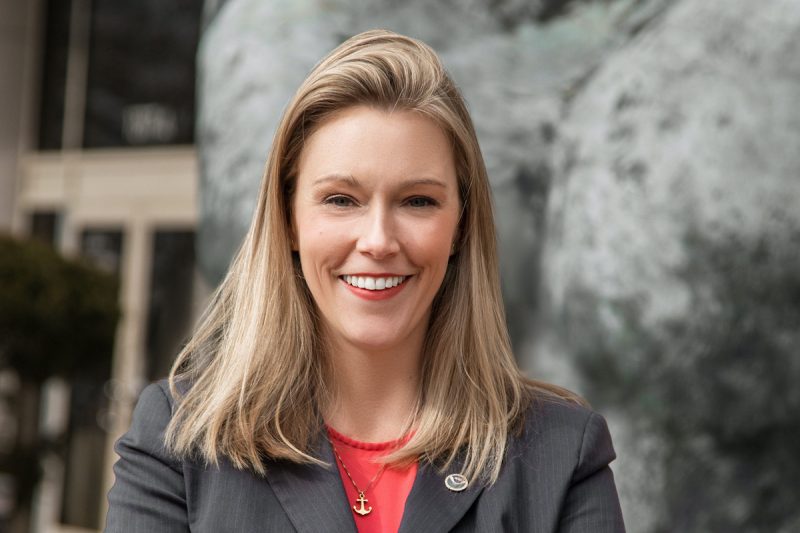Wild and farmed seafood critical to future food supply
“Building a strong domestic aquaculture industry is a win-win. It’s good for the economy and good for the planet,” – NOAA
By SeaWestNews
Danielle Blacklock is a firm believer that wild and farmed seafood are critical to America’s future food supply.
As the new director of the Office of Aquaculture at the National Oceanic and Atmospheric Administration’s (NOAA), Blacklock will provide the strategic vision for developing a strong marine aquaculture industry in United States federal waters.
Blacklock said her vision for the office is “to help the United States move even more decisively toward becoming a global leader in sustainable seafood production. Wild capture fisheries and farmed seafood are intertwined and both are critical to our nation’s future food supply.”
“I plan to work inclusively and transparently to guide the development of sustainable farms in federal waters, while supporting additional development in state waters and associated land-based facilities,” she added.
As the agency’s new director for the office of aquaculture, Blacklock will lead the office’s work on several distinct priority areas – including regulation and policy, science, outreach, and international activities in support of US aquaculture.
“I am thrilled about Danielle’s vision for the office and our role as catalysts for the expansion of marine aquaculture in the United States,” said Paul Doremus, deputy assistant administrator for operations at NOAA Fisheries.
“Building a strong domestic aquaculture industry is a win-win. It’s good for the economy and good for the planet,” he said in a statement.
“US marine aquaculture provides a complement to our world class wild capture fisheries and will be vital for supporting our nation’s seafood production, year-round jobs, rebuilding protected species and habitats, and enhancing coastal resilience.”
Blacklock comes to this position after serving in various roles within the agency for the past 10 years. Most recently, she has been serving as a senior policy advisor for aquaculture and recently completed a six-month assignment at the Food and Agriculture Organization of the United Nations, focused on aquaculture sustainability globally.
Blacklock succeeds Dr. Michael Rubino, who was appointed the agency’s first director of the office of aquaculture. He became the agency’s first senior advisor for seafood strategy in April 2019.
Meanwhile, the Sustainable Fisheries Partnership (SFP), a US-registered nonprofit that operates globally to rebuild depleted fish stocks has announced a new website that serves as an independent, online platform to showcase active aquaculture improvement projects or AIPs.
The AIP Directory (www.aipdirectory.org) was developed by Sustainable Fisheries Partnership (SFP) as an open platform for information sharing for anyone active or interested in AIPs.
“AIPs are an important tool to drive sustainability – whether participating farms have certified responsible management practices in place or not. It is important for ensuring impact and credibility that projects have a clear set of goals and a defined work plan, and that they are publicly reporting on progress,” Seafresh Group Director of Sustainability Dominique Gautier said.
“The AIP Directory gives project managers a mechanism to tell the world about their progress, and buyers and funders greater insight into what improvement projects are underway and how they can get involved.”
The AIP Directory currently lists five active AIPs that cover three countries (China, Indonesia, and Thailand) and two species (shrimp and tilapia). Other active AIPs are invited to register on the website for free. The website also includes a range of resources and tools to support those looking to start new projects.
“The AIP Directory really is a one-stop shop for all stakeholders in the supply chain,” SFP’s Aquaculture Director Anton Immink said. “As a buyer, you can find active projects; as an AIP implementer, you can showcase your project and report progress. If you can’t find a project that fits your needs, there are tools and resources on how to start a new AIP.”
(NOAA image of Danielle Blacklock)

